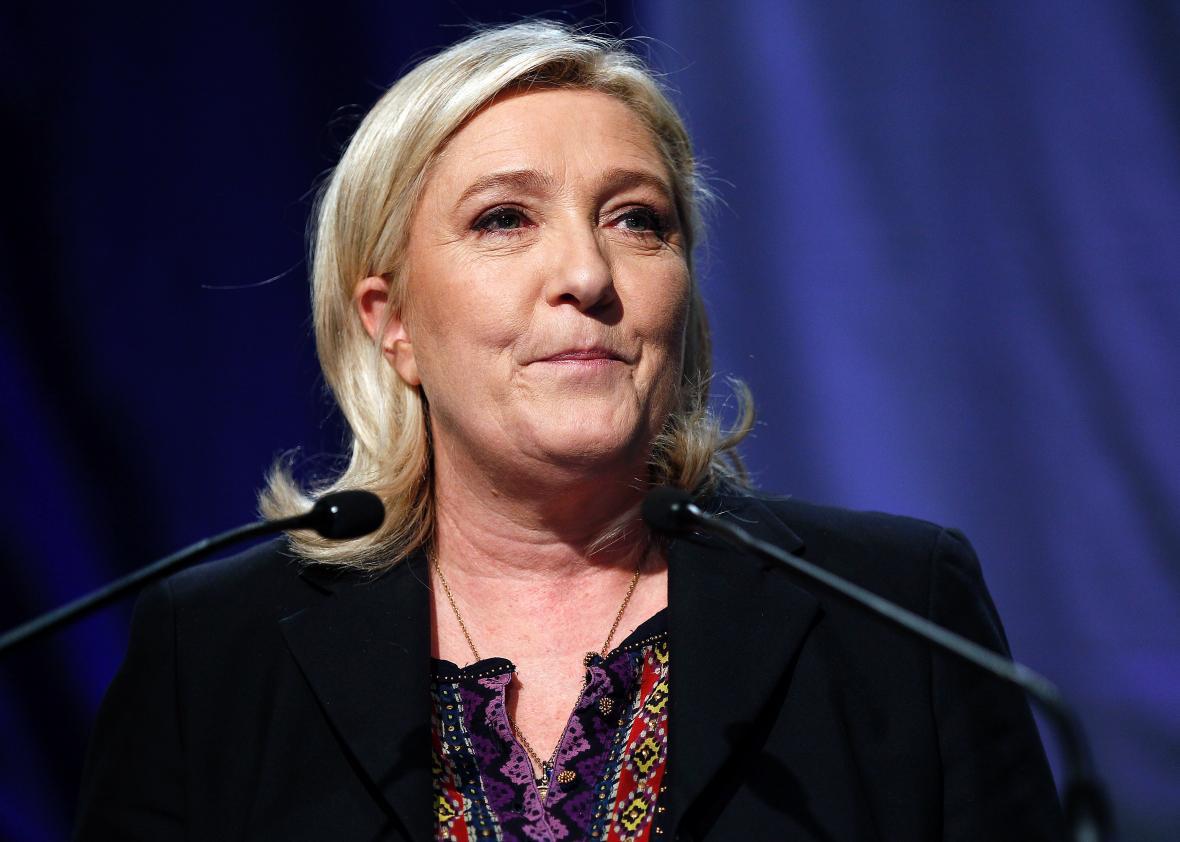Perhaps I jumped the gun a bit on the imminent far-right takeover of France. One week after the nationalist, anti-immigrant National Front party won more than 30 percent of the nationwide vote in the first round of voting and led in six out of 13 French regional elections, the party came up empty in the second round on Sunday. The party, in fact, failed to win control of a single region.
While regional governments aren’t as politically powerful in France as in other countries, the vote had major symbolic importance, coming so soon after the Paris terrorist attacks. National Front leader Marine Le Pen had described this contest as the “foundation stone” for success in national elections next year.
The setback for the front required President François Hollande’s Socialist Party to essentially fall on its sword, pulling their candidates from several close regional elections and telling supporters to vote for former President Nicolas Sarkozy’s center-right Republicans instead, so as not to split the vote. This dynamic most famously came into play in 2002, when Socialist leaders threw their support behind Conservative President Jacques Chirac after Marine’s father, Jean-Marie Le Pen, shocked the political establishment by qualifying for the second round of the presidential election. It’s proved highly effective at keeping the front out of power ever since. The party has lost 535 out of 538 second-round elections in local elections to the Republicans this year and controls only 11 towns in France despite the fact that, according to some measures, it is now the country’s most popular party.
Le Pen’s success in the first round elicited many comparisons to Donald Trump’s continued success in the U.S. GOP primary. A striking Economist cover last week featured the two of them along with Hungarian Prime Minister Viktor Orbán as the standard-bearers of a new wave of right-wing populism fueled by fears of immigration and globalization. So does the National Front’s difficulty in breaking through the second rounds of elections augur anything for America’s own populist insurgency?
The two countries’ election systems work quite differently and the electorates couldn’t be more different, but it does seem conceivable that some Republican-leaning voters might hold their nose and support the Democratic nominee if the other choice is Trump or not vote at all. A new NBC/Wall Street Journal poll shows Hillary Clinton beating Trump by 10 points in a head-to-head matchup but would lose to Marco Rubio. Clinton would beat Ted Cruz by only three points. This jibes with results from other recent polls.
Still, the French example should not exactly be seen as comforting to those concerned by Trump’s growing appeal. In attempt to draw a clear distinction with the Socialists and head off the challenge from the far right, Sarkozy has toughened his party’s stance on immigration issues, calling for the government to restrict immigrants’ access to welfare payments and citizenship and for the EU’s rules on the free circulation of people across borders to be suspended. He’s also moved to the right on social issues, calling for a repeal of France’s same-sex marriage law after years of ambivalence on the topic. The Le Pen example suggests that some far-right movements have trouble actually getting candidates into office, but they have other ways of shaping the political agenda.
